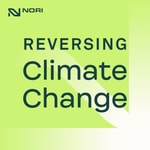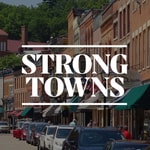Reversing Climate Change – Details, episodes & analysis
Podcast details
Technical and general information from the podcast's RSS feed.

Reversing Climate Change
Carbon Removal Strategies LLC
Frequency: 1 episode/10d. Total Eps: 257

Recent rankings
Latest chart positions across Apple Podcasts and Spotify rankings.
Apple Podcasts
🇨🇦 Canada - philosophy
21/07/2025#95🇨🇦 Canada - philosophy
20/07/2025#63🇨🇦 Canada - philosophy
15/07/2025#79🇬🇧 Great Britain - philosophy
13/07/2025#69🇬🇧 Great Britain - philosophy
08/07/2025#70🇬🇧 Great Britain - philosophy
20/06/2025#98🇬🇧 Great Britain - philosophy
19/06/2025#72🇨🇦 Canada - philosophy
31/05/2025#95🇨🇦 Canada - philosophy
30/05/2025#54🇨🇦 Canada - philosophy
27/05/2025#77
Spotify
No recent rankings available
Shared links between episodes and podcasts
Links found in episode descriptions and other podcasts that share them.
See all- https://slack.com/
624 shares
- https://nori.com/
246 shares
RSS feed quality and score
Technical evaluation of the podcast's RSS feed quality and structure.
See allScore global : 53%
Publication history
Monthly episode publishing history over the past years.
335: How Nori Created a Direct Air Capture + Storage Methodology: A Case Study—w/ Radhika Moolgavkar & Rick Berg, Supply at Nori
Season 1 · Episode 335
mardi 11 février 2025 • Duration 01:22:41
How do registries create carbon removal methodologies? Who should be involved in the process, and to what degree? How does one balance all of the competing attributes and stakeholders?
Today's episode is a show in three parts:
First, Nori co-founder and host ofReversing Climate Changeintroduces the context for the main segment which was recorded the better part of a year before its airing. He explores whether or not the quasi-regulatory requirement for registries not to also be marketplaces leads to proprietary methodologies.
Secondly, as Nori has closed down since the recording of this episode, Ross chats with Anu Khan, the Founder and Executive Director of the Carbon Removal Standards Initiative to discuss her work of building an ark for carbon removal methodologies and how that work informs policy and the growth of carbon removal.
Thirdly, is the original body of the podcast where Ross speaks with Radhika Moolgavkar, formerly the VP of Supply & Methodology at Nori, and Rick Berg, formerly Nori’s Director of Methodology, about the development of Nori’s Direct Air Capture + Storage methodology.
They discuss the importance of open methodology development for transparency and trust, and ungating their work so that others can use it and adapt it under the right Creative Commons licensure.
The nuts and bolts of how the expert advisory panel and public comment period work, as well as how that feedback filters back into the methodology, is explained.
The podcast also covers the decision behind selecting DAC amongst all of the other CDR methodologies, the challenges in methodology harmonization across registries and geographies, and how to handle the future of methodological updates as the industry evolves and more is learned.
Resources
Become a paid subscriber toReversing Climate Change
Read Nori's DAC+S Methodology (coming soon!)
Carbon Removal Standards Initiative
Nori's Creative Commons license
How You Can Support the Reversing Climate Change Podcast
Season 1
dimanche 9 février 2025 • Duration 04:45
Dear listener,
Thank you so much for being a fan of the show. You could be listening to anything with your one wild and precious life and I do not take that for granted. From the bottom of my heart, thank you!
Now that the show is independent, I am working to make it financially viable. Can I count on you to help support Reversing Climate Change by doing any of the following?
- In your podcast app of choice, please give the show a full rating and/or review. The two most impactful are Apple Podcasts and Spotify, but if you use a different app that has ratings or reviews, please help me there with a great rating and/or review.
- Will you please become a paid subscriber of Reversing Climate Change? For $5/month, you will get bonus content, ad-free listening, and more features as they get rolled out. This is very impactful and adds up!
- If you are a podcaster or aspire to become one, here are referral links for the recording platform I use called Riverside, and the editing platform I use called Descript. I can recommend both without reservation.
- Tell a friend about the show! If there is an episode you love, please tell someone, share it on social media, and just help me grow the show.
If you have feedback of any kind that you'd like to share, please send it to carbon.removal.strategies[at]gmail.com.
Thank you so much for helping the show. It is deeply meaningful to me.
Sincerely,
Ross
328: Building a Biochar Startup on a Podcast: Grounded Takes Over Reversing Climate Change—w/ Tom Previte, founder of Restord & host of Grounded
Season 1 · Episode 328
jeudi 13 juin 2024 • Duration 42:27
The Grounded podcast takes over Reversing Climate Change! Tom Previte of The Carbon Removal Show, founded a new biochar company in the United Kingdom called Restord. And like any good podcaster, he decided to make a show about it!
Grounded: A Climate Startup Journey, just wrapped its five-episode first season documenting Tom's attempts to start a new biochar company. He walks listeners through so many of the basic questions of starting a business, and specifically a business in a new category like carbon removal. What standard should one try to work within? Which parts of the life-cycle assessment matter? Who actually wants this product?!
What's especially novel about this episode is that Tom and his producer Ben Weaver-Hincks produced it in the style of Grounded, with voiceover segments and various other effects!
Tom and Ross talk about how to make podcasts about carbon removal interesting, how various design decisions impact quality and frequency of publishing, and what we can do to get more people into CDR and climate action through creative media work.
Resources
The Carbon Removal Show
Grounded
Restord
Restord's crowdfunding campaign
S3E16: How to save vanishing foodways and why!—w/ Dan Saladino, author of Eating to Extinction
Season 3 · Episode 16
mardi 7 juin 2022 • Duration 53:55
The Green Revolution in the second half of the 20th century was seen as an important solution to the problem of malnutrition in the developing world at the time.
And while it may have succeeded in staving off hunger, the industrialization of agriculture created a whole new set of problems, chief among them a lack of diversity in our food system.
Why does this matter? What is the food monoculture costing us? And what can we do to bring back some of the diverse foodways we’ve lost along the way?
Dan Saladino is the renowned food journalist behind BBC Radio 4’s The Food Programme and author of Eating to Extinction: The World’s Rarest Foods and Why We Need to Save Them.
On this episode of Reversing Climate Change, Dan joins Ross to explain why we so desperately need biodiversity in our food system, exploring why diverse foods may taste better, and could be better for us.
Dan walks us through several examples of rare foods discussed in his book and offers insight on the people working to revive old foodways.
Listen in to understand how the war in Ukraine is causing a food crisis and learn what we can do to create a system that is more resilient, more robust, and healthier—both for people and the planet.
Connect with Nori
Check out our other podcast, Carbon Removal Newsroom
Resources
Eating to Extinction: The World’s Rarest Foods and Why We Need to Save Them by Dan Saladino
Royal Botanic Gardens in Kew Research
Consider the Axe: Food, Farming and the Wonders of Stonehenge on The Food Programme
S3E15: Will NFTs Go Carbon-Negative?—w/ Alexander Salnikov, cofounder of Rarible
Season 3 · Episode 15
mardi 24 mai 2022 • Duration 34:01
Many of the artists and creators who mint nonfungible tokens (NFTs) are concerned about the environmental impact of the blockchain.
But what if they could pair carbon removal with any given NFT to make it carbon-negative?
Alexander Salnikov is Cofounder and Chief Strategy Officer at Rarible: a multichain, community-centric NFT marketplace.
On this episode of Reversing Climate Change, Alexander joins Ross and cohost Alexsandra Guerra, Nori’s Director of Corporate Development, to discuss the partnership between Nori and Rarible, describing how it affords Rarible users the opportunity to address their carbon footprint.
Alexander explains how NFTs function as an effective way to store assets on the blockchain, exploring the many different use cases for NFTs, and how having access to a community is attracting new users to the space.
Listen in for Alexander’s insight around the future of NFTs and learn how blockchain technology might be used to make all our systems more transparent, faster, and more efficient.
Connect with Nori
Check out our other podcast, Carbon Removal Newsroom
Resources
Rarible’s Partnership with Nori
Aspen Ideas Climate Conference
Retina Ghost: creator of the Nori Proof-of-Attendance NFTs from the Miami event
Nori Token Pre-Launch Carnival Recap
Jesse Smith on Reversing Climate Change S3EP12
Ross’s Nori Logo Graveyard NFT
S3E14: How to Have Fearlessly Curious Conversations in Dangerously Divided Times—w/ Mónica Guzmán
Season 3 · Episode 14
mardi 17 mai 2022 • Duration 39:04
Mónica Guzmán has some difficult conversations with her parents. She’s a liberal Democrat, while her mom and dad voted enthusiastically for Trump both times.
So, how does she bridge the political divide and maintain a loving relationship with her parents, despite their differences of opinion?
And what can you and I do to develop intellectual curiosity and see difficult issues from different points of view?
Mónica is the Digital Director at Braver Angels , the nation’s largest nonprofit working to depolarize America. She is also the author of the new book, I Never Thought of It That Way: How to Have Fearlessly Curious Conversations in Dangerously Divided Times.
On this episode of Reversing Climate Change, Mónica joins Ross to discuss how she navigates the relationship with her conservative Republican parents, describing why it’s important to maintain connections with friends and family who don’t see things the way you do.
Mónica explains how condescension and curiosity are mutually exclusive, challenging us to begin conversations by believing that the other person’s perspective is valid and asking questions around how they came to their beliefs.
Listen in to understand how the more facets of an issue you see, the closer you are to the truth, and learn how to be open to influence or new information that might change your opinion.
Connect with Nori
Check out our other podcast, Carbon Removal Newsroom
Resources
S3E13: Why genocide and war can follow an extreme weather event—w/ Scott Carney & Dr. Jason Miklian
Season 3 · Episode 13
mardi 10 mai 2022 • Duration 48:15
A long-term study of climate and conflict determined that in places with large populations and a history of political exclusion of ethnic groups, nearly one-third of the wars initiated in the last 40 years were preceded by a climate disaster.
So, what is the connection between climate emergencies and armed conflict? Why do climate disasters escalate political disputes? And what can we do about it?
Scott Carney is an investigative journalist, anthropologist, and New York Times bestselling author. Dr. Jason Miklian serves as a senior researcher at the Center for Development and the Environment at the University of Oslo. Together they are the authors of The Vortex: A True Story of History’s Deadliest Storm, an Unspeakable War, and Liberation.
On this episode of Reversing Climate Change, Scott and Jason join Ross to discuss the geopolitical landscape of South Asia after World War II and explain how the 1970 Bhola Cyclone led to the genocide of 3 million people and triggered the Indo-Pakistani War.
Scott and Jason describe how the conflict between West Pakistan, East Pakistan (later, Bangladesh) and India played out geopolitically with the Cold War between the US and the Soviet Union and offer insight into President Nixon and Pakistani President Yahya Khan’s roles in furthering the Sino-Soviet split.
Listen in to understand why climate disasters serve as catalysts for war, what lessons we can learn from the fight for Bangladesh, and what we can do to prevent armed conflict in the wake of climate emergencies moving forward.
Connect with Nori
Check out our other podcast, Carbon Removal Newsroom
Resources
Center for Development and the Environment at the University of Oslo
S3E12: The bleeding edge of regenerative agriculture—w/ Jesse Smith of White Buffalo Land Trust
Season 3 · Episode 13
mardi 3 mai 2022 • Duration 55:28
What is the gap between what farmers know now and what they need to know to farm more regeneratively? How do we close that gap?
What is the best way to advocate for the adoption of regenerative agriculture practices?
Jesse Smith is the Director of Land Stewardship at White Buffalo Land Trust, a 501(c)(3) nonprofit dedicated to practicing, promoting and perfecting the principles and practices of regenerative ag.
On this episode of Reversing Climate Change, Jesse joins Ross to explain how WBLT furthers regenerative ag through the development of products, training programs, and scientific research.
Jesse shares WBLT’s focus on teaching the integration of annual and perennial cropping with animal systems and offers advice on attracting young engineers, scientists, and creative artists to the regenerative ag space.
He goes on to discuss the benefit of ecosystem service payments, describing what he views as the unfair advantage producers have in regions with a higher potential for carbon sequestration and what markets like Nori can do about it.
Listen in for Jesse’s insight on using distributed ledger technology and blockchain to support regenerative ag and learn how you can support White Buffalo Land Trust and its consumer-facing brand, Figure Ate Foods.
Connect with Nori
Check out our other podcast, Carbon Removal Newsroom
Resources
Leah Penniman on Reversing Climate Change S2EP57
Center for Regenerative Agriculture at Jalama Canyon Ranch
California’s Healthy Soils Program
The NRCS Conservation Stewardship Program
USDA Local Food Promotion Program
How a Warming Climate Is Changing Wine on Reversing Climate Change S3EP10
S3E10: How a Warming Climate Is Changing Wine—with Paul Wagner, wine educator and lecturer
Season 3 · Episode 10
mardi 12 avril 2022 • Duration 58:44
The Rhône Valley of France is famous for its Syrah, Grenache, and Viognier grapes (among others), while Merlot, Cabernet Sauvignon, and Cab Franc (et al!) are grown in Bordeaux. And these wine grapes have thrived in their respective regions for centuries.
But what happens when rising temperatures change the kinds of grapes that can be grown in a particular area?
How is the climate crisis changing the way wine is produced? And what can we do as consumers to promote sustainability among winemakers?
Paul Wagner is a Viticulture and Winery Technology Instructor at Napa Valley College and Cohost of Bottle Talk with Rick and Paul. He also serves as guest lecturer at multiple universities in Europe and the US and offers several wine-related courses as part of The Great Courses lecture series.
On this episode of Reversing Climate Change, Paul joins Ross to explain what attracts him to the artistry and experience of winemaking, exploring what makes wine grapes sweeter than any other fruit and how they give you a sense of both place and time.
Paul describes how climate is changing the way wine is made everywhere in the world, discussing what winemakers are doing to avoid rising temperatures and how the climate crisis might influence the evolution of wine in places like Bordeaux and Rhone.
Listen in for insight on how climate informs the alcohol content in wine and get Paul’s advice for the environmentally conscious on choosing a wine you like—and then finding a winemaker who’s working toward carbon neutrality.
(Wine is discussed for its own sake for the first twenty or so minutes. If you want to skip right to the intersection with climate, it begins at 24:32.)
Connect with Nori
Check out our other podcast, Carbon Removal Newsroom
Resources
Napa Valley College Viticulture & Winery Technology Department
Salt, Fat, Acid, Heat: Mastering the Elements of Good Cooking by Samin Nosrat
Familia Torres: Wine & Climate Change
Wine Folly: The Essential Guide to Wine by Madeline Puckette and Justin Hammack
S3E9: Carbon Removal Newsroom: the people behind CDR's panel news show—w/ host Radhika Moolgavkar & producer Asa Kamer
Season 3 · Episode 9
mardi 5 avril 2022 • Duration 43:16
Carbon Removal Newsroom, the sister podcast to Reversing Climate Change, was born out of a desire to explore current events in the carbon removal space from a policy perspective.
But since the show debuted in early 2019, its production team has evolved and so has our approach to discussing the latest in climate news.
Radhika Moolgavkar is Head of Supply and Methodology at Nori and Host of Carbon Removal Newsroom, and Asa Kamer serves as Producer of CRN.
On this episode of Reversing Climate Change, Radhika and Asa join Ross to explain how CRN evolved to focus on the business, policy, and science of carbon removal news and share their favorite episodes from the recent past.
Radhika and Asa explore how podcasting facilitates thoughtful public conversations around meaningful issues and describe how a show benefits when its host approaches the subject matter with a beginner’s mind.
Listen in to understand how CRN stays up on big news in the industry and get Radhika and Asa’s take on the future of carbon removal.
Connect with Nori
Check out our other podcast, Carbon Removal Newsroom
Resources
Chris Barnard at the American Conservation Coalition
The Boom in Carbon Removal Legislation and Funding on CRN EP045
Noah McQueen of Heirloom on CRN S3EP28
OpenAir’s Toby Bryce on CRN S3EP29
Chan-Zuckerburg Initiative Invests $44M in Carbon Removal on CRN S3EP30
Ocean-Based Carbon Removal on CRN S3EP32
Ton-Year Accounting with Carbon Direct on CRN S3EP31
Eight DAC Companies to Watch in 2022 on CRN S3EP27
Forest Carbon Over-Crediting on CRN S3EP21
Climate Reparations on CRN S3EP26
Carbon Removal Memes on Instagram
Carbon Removal Memes for Climate Restorative Teens on Facebook
Carbon Removal Memes for Climate Restorative Teens on Twitter









